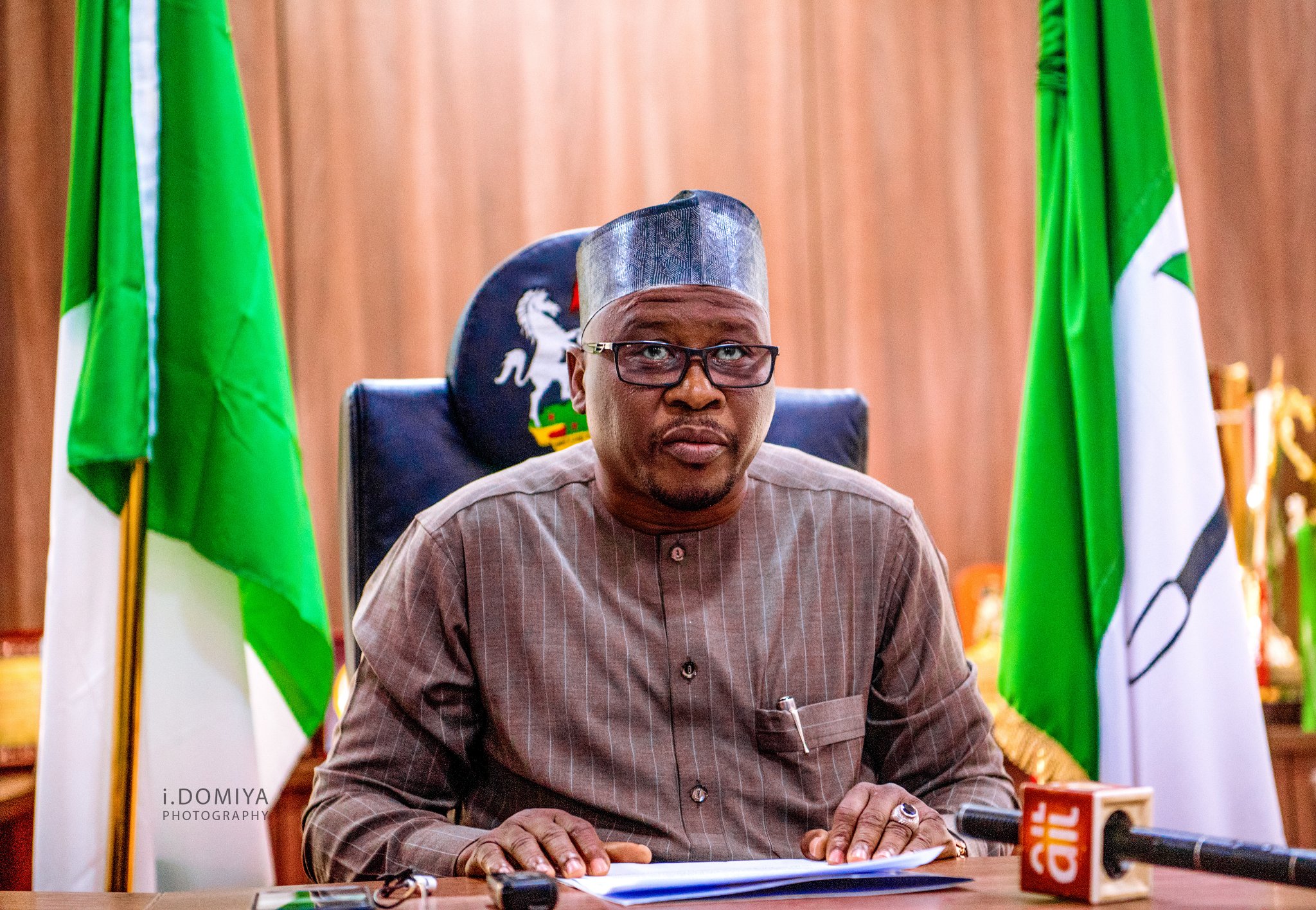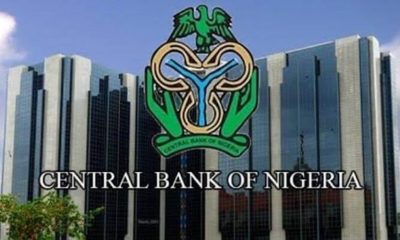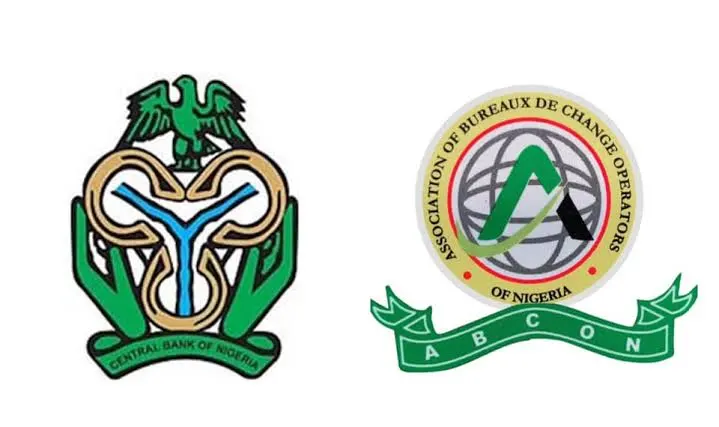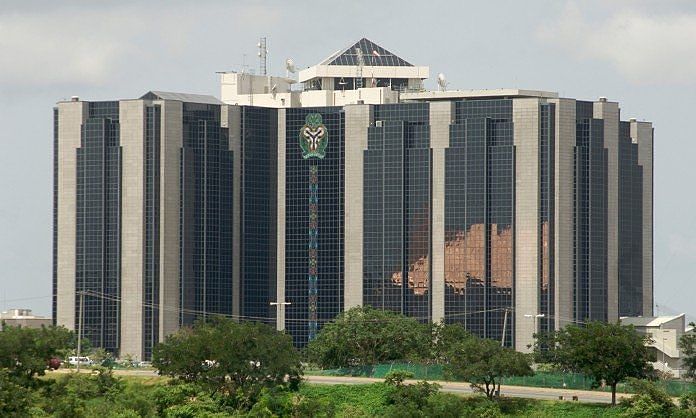Agriculture
MAAN repays ABP loans, erects maize pyramid

By Matthew Eloyi
The Maize Association of Nigeria (MAAN) has disclosed that it is erecting a maize pyramid in Kaduna state, as part of its loan repayment under the Anchor Borrowers Programme (ABP).
The maize pyramid, which was sourced from around the country, was the association’s second since the start of the ABP in 2015.
The National President of MAAN, Dr Abubakar Bello, told journalists in Kaduna on Wednesday that the pyramid was built to show off the achievement of the Anchor Borrowers Program.
He explained that the pyramid, which was the first of its kind in Nigeria, was part of maize farmers’ loan payback to the Central Bank of Nigeria (CBN) in the wet season farming of 2021.
In his words, “We want to set up this pyramid in order to showcase the success and the achievement of the Anchor Borrowers Programme, under President Muhammadu Buhari.
“Also, we want to showcase what we have done and to acknowledge what Mr President has done for maize farmers in Nigeria, as well as to show the efforts and appreciation of all maize farmers in Nigeria.
“I want to appreciate the efforts and support of the Kaduna State Governor, Mallam Nasir El-Rufai, who embraced this programme and promised to support us, we have seen the reality.
“The number of pyramids to be erected would be determined by the space we have here. The loan repayment is for the 2021 wet season.”
Speaking on the high cost of maize, Dr Bello said, COVID-19 pandemic was a contributory factor because input production companies were unable to produce, due to movement restriction.
He said that maize production increased to 20 million metric tons in 2020, as against 8 million metric tons that was being produced as at 2015, before the introduction of the ABP.
“The issue of high price of food is something that is not only for maize, because if you look at the statistics of FAO, there will be food shortage by the end of 2021, hence this would bring about high price of other commodities.
“The price of maize is even better than the price of other commodities, it is a global issue, it is not only in Nigeria.
“Another factor that contributed to the high cost of maize is COVID-19 in 2019 and 2020, because the inputs that is being produced across many countries in the world were not produced in 2019 and 2020.
“There was scarcity of inputs that farmers will use on their farms, even the mechanization equipment were very scarce due to the pandemic, as a tool formally sold for N1,500 is now N4000, thereby bringing about increases in the cost of production.
“Before the Advent of this administration in 2015, we only had 8 million tons of maize, but by the end of 2020, it has increased to 20 million tons.
“Apart from that, farmers now have access to inputs without their money, but as a loan, they get the technology under the ABP.
“Where farmers are getting 20 tons of maize, has increase to 50 tons, there is a new technology of farming, there are extension services under the ABP.
“Mechanization, monitoring and evaluation, the farmers are benefiting and they have increased their production.
“The maize mills we have in the country have increased, the processors have more companies and are now employing more people, these are the success stories of the ABP.
“In one season, more than one million people got jobs under ABP,” he said.
Agriculture
Fintiri Unleashes N2bn Boost for Farmers as Adamawa Rolls Out 2025 Agricultural Support Programme

The Adamawa State Government has launched the 2025 Agricultural Support Programme aimed at empowering smallholder farmers and enhancing food security across the state.
Commissioner for Agriculture, Prof. David Jatau, disclosed this on Friday while briefing journalists in Yola. He revealed that Governor Ahmadu Umaru Fintiri had approved a substantial N2 billion for the initiative, which targets increased agricultural productivity in the upcoming farming season.
According to Jatau, the programme—which is already underway—will provide subsidised agricultural inputs such as fertilisers, improved seeds, and other essential materials to farmers in six local government areas.
“The programme has already commenced in six LGAs—Madagali, Michika, Hong, Maiha, Demsa, and Ganye,” he said. “By next year, during the rainy season, we will extend the programme to the remaining LGAs.”
He explained that 300 hectares of farmland would be cultivated in each of the participating local governments, with 300 farmers benefitting per council.
To ensure fairness and transparency, Jatau said a multi-stakeholder committee had been constituted to oversee the beneficiary selection process. The committee comprises representatives of traditional councils, local government authorities, security agencies, youth groups, and women organisations.
“We are also equipping extension workers with training to offer farmers guidance on modern agricultural techniques for improved yield,” he added.
The commissioner noted that the intervention would not only increase food production but also generate employment, improve rural incomes, and contribute to economic stability in farming communities.
Jatau also revealed that the state government is collaborating with non-governmental organisations and agricultural development bodies, with over 2,700 hectares of farmland pledged by development partners for cultivation.
He reaffirmed the Fintiri administration’s commitment to achieving food self-sufficiency and urged beneficiaries to make the most of the programme.
Agriculture
KWASU Microfinance Bank disburses loan to farmers

The Kwara State University (KWASU) Microfinance Bank has provided loan facilities to farmer groups in and around Malete, Moro Local Government Area.
The Vice-Chancellor and Chairman of the Board of Trustees, KWASU Microfinance Bank, Prof. Jimoh Shaykh-Luqman, announced this while presenting offer letters to the farmers’ associations at a formal event held on the university campus.
Addressing the farmers, the Vice-Chancellor, represented by the Deputy Vice-Chancellor (Administration), Prof. Moshood Jimba, said the agricultural loan scheme aimed to support farmers in boosting food production and enhancing food sustainability.
“The loan is meant to support your farm operations, especially in the upcoming planting season,” he said.
Prof. Shaykh-Luqman reaffirmed KWASU’s commitment to its mantra of being a “University for Community Development,” leveraging its expertise and resources to initiate programmes that drive local development.
The Managing Director and Chief Executive Officer of KWASU Microfinance Bank, Alhaji Hakeem Hassan, noted that the agricultural loan scheme was piloted last year with 15 farmers as beneficiaries.
He added that the pilot scheme yielded positive results for both the farmers and the bank, as all beneficiaries successfully repaid their loans.
Following this success, he said, the scheme had been expanded to include more farmers under various farmers’ associations.
The News Agency of Nigeria (NAN) reports that the associations benefiting from the agricultural loan scheme include Alanu Agbelere Farmers Group, Agbedola Ketere Group, and Itesiwaju Agbe Group Omoni.
Others are Agbeloba Farmers Association (Malete Market), Agbeyewa Elemere Farmers Group, Agbe Olofeere Group, and Agbeloga Malete Farmers Group.
Speaking on behalf of the farmers, the Chairman of Agbeloba Farmers Association (Malete Market), Alhaji Mohammed Abdulrazaq, expressed gratitude to the university and the bank for their trust.
He pledged, on behalf of the beneficiaries, to utilise the loans effectively and ensure prompt repayment.
Agriculture
Kano Govt. implements N2.3bn livestock empowerment programme

The Kano State Government has begun implementing the second phase of its livestock empowerment programme valued at N2.3bn under the Kano State Agro-Pastoral Development Project (KSADP).
The Commissioner for Agriculture and Natural Resources, Dr Mamood Danjuma, disclosed this while addressing newsmen on Thursday in Kano.
Danjuma said the initiative aims to support beneficiaries with livestock, feeds, drugs, and salt lick to enhance their economic well-being.
According to him, 911 beneficiaries are being supported with two rams each, feed for three months, drugs and salt lick, while 2,386 women are being supported with two goats and a buck goat in the poorest households in the state.
He explained that the total package under the empowerment programme showed that 1,342 bulls were procured by the government at the cost of N560m, 1,822 rams were procured at the cost of N175m and 7,158 goats bought at the cost of N451m.
“Under the cattle scheme, each cattle gains 100kg over a period of 120 days. The fattening period is for 120 days, making three cycles possible in a year.
“As for the small ruminants fattening scheme, with the same 120-day fattening period yielding an extra 15kg/animal.
“The project promotes goats’ reproduction through women who will take care of the animals and sell the young ones to improve their income and standard of living,” he said.
He said that the programme promotes economic empowerment, particularly among women, by providing them with livestock to care for and sell, ultimately improving their income and standard of living.
-

 Headlines4 years ago
Headlines4 years agoFacebook, Instagram Temporarily Allow Posts on Ukraine War Calling for Violence Against Invading Russians or Putin’s Death
-

 Headlines4 years ago
Headlines4 years agoNigeria, Other West African Countries Facing Worst Food Crisis in 10 Years, Aid Groups Say
-

 Foreign4 years ago
Foreign4 years agoNew York Consulate installs machines for 10-year passport
-

 News1 year ago
News1 year agoZero Trust Architecture in a Remote World: Securing the New Normal
-

 Entertainment3 years ago
Entertainment3 years agoPhyna emerges winner of Big Brother Naija Season 7
-

 Headlines2 years ago
Headlines2 years agoNigeria Customs modernisation project to check extortion of traders
-

 Entertainment2 years ago
Entertainment2 years agoMovie download platform, Netnaija, announces closure
-

 Economy2 years ago
Economy2 years agoWe generated N30.2 bn revenue in three months – Kano NCS Comptroller













